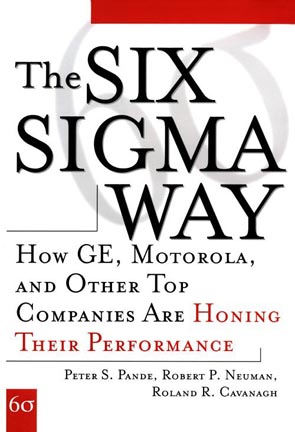Today I attended the launch event of the new international standard for Six Sigma: ISO 13053. This took place at the Royal Statistical Society’s (RSS) offices in London. The two main speakers were Chris Harris who was involved in the working group that developed the Standard and Prof. Tony Bendell who presented a “practitioner’s and educator’s view”. You can find my Mindmaps from each of these presentations here and here.
Maybe I’m just being an old cynic, but I can see the dead hand of ISO consultants loving this. Despite all the words about “this is not a compliance standard and is not currently auditable”, “it needs to be integrated locally to meet needs” and “it’s guidance, not mandatory”, you can see the consultants lining up their pitches:
– We can help you get ISO 13053
– Adopt the new Six Sigma international standard
– Buy our 20 day Black Belt training and comply with ISO 13053
There won’t be many saying “we can help you improve profitability” or “we can help make your organisation more efficient”, or better still “we can help you develop the capability to improve continuously”.
For me, in everything I heard today there was a lack of focus on Continuous Improvement capability and I wasn’t clear how the Standard would help organisations understand the various possible improvement starting points (or “on-ramps” as Peter Pande called them). I’ve long been a fan of his book “The Six Sigma Way” which makes it clear that Six Sigma is a powerful way to build improvement skills into an organisation and is not a set of statistical tools to be used in a DMAIC project methodology.
I suppose we can be grateful that the Standard only provides Fact Sheets for 31 tools that are in the Six Sigma kitbag and not the 141 that Tony Bendell said some organisations are quoting.
There probably is value in having a Standard that at least defines some terminology and its readers can all use the same language to talk about Six Sigma. My worry is that it focuses people on “methodology” and not on capability for improvement. Some people will have heard this question before: “what’s the difference between a methodologist and a terrorist? – you can negotiate with a terrorist”.
I’m with Tony Bendell when he says that too many Six Sigma programmes have been examples of poor practice:
– Out of date statistical thinking
– Software “black boxes” and statistics dominating the approach
– Training by rote
– Lack of root cause analysis thinking
I guess I might have been more convinced if this had been launched at the Institute of Directors rather than the Royal Statistical Society. As I said, call me a cynic…










Discussion
Comments are closed.